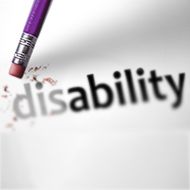RCVS introduces Working Party for accessibility

"The working party will endeavour to find a way that those wishing to undertake a veterinary degree or a veterinary nursing qualification in the UK are not faced with barriers due to disability" - Dr Sue Paterson.
The Royal College of Veterinary Surgeons (RCVS) has set up a new 'task and finish' working party to increase access to the veterinary professions for people with disabilities.
Reporting to the RCVS Advancements of the Professions Committee, the Working Party has been formed following the recommendations of the RCVS Legislation Reform report, which suggested that the College should 'introduce provisions to allow limited licensure for veterinary surgeons in principle, including for those with a disability.'
Dr Sue Paterson, who will Chair the Working Party, said: “I am delighted to Chair our new task and finish Working Party. The formation of this new Working Party is a significant and very welcome step in helping to make the veterinary professions more accessible for people with a disability.
“Fellow members of the Working Party include a broad range of colleagues, students and veterinary bodies, to ensure we take into account as many perspectives as possible when we propose recommendations.
"We recognise that many organisations have already begun to explore what we could do to make the veterinary professions more accessible, and we are keen to work collaboratively with them to ensure we keep up the momentum on this vital work.
“The Working Party will endeavour to find a way that those wishing to undertake a veterinary degree or a veterinary nursing qualification in the UK are not faced with barriers due to disability."
The RCVS has said that the terms of reference for this working party are:
• To produce a report on current best practice in the implementation of reasonable adjustment, with recommendations for the veterinary professions.
• Reporting on whether limited licensure could, in principle, increase access to veterinary degrees and veterinary nursing qualifications for those with disabilities beyond that allowed by reasonable adjustment.
• Making recommendations on related issues, such as appropriate nomenclature for any policies and practices.
The working party will involve both those with lived experience, and those involved in education, and key stakeholders will be involved in discussions throughout the process, including representatives from the Association of Veterinary Students (AVS), British Veterinary Association (BVA), British Veterinary Chronic Illness Support (BVCIS), the British Veterinary Nurses Association (BVNA) and Veterinary Schools Council (VSC).
Vice-chair of the BVCIS, Olivia Anderson-Nathan, said: "We are delighted that RCVS has committed to a fuller review on plans for any 'limited' licensure of disabled graduates.
“As representatives of the affected community, we have long campaigned to improve disabled access to the professions and we are excited to explore other approaches alongside key stakeholders and look forward to working with RCVS to make the veterinary profession genuinely accessible."



 The RCVS has announced a new version of its 1CPD mobile app, with enhanced features for veterinary surgeons and veterinary nurses to record their continuing professional development.
The RCVS has announced a new version of its 1CPD mobile app, with enhanced features for veterinary surgeons and veterinary nurses to record their continuing professional development.